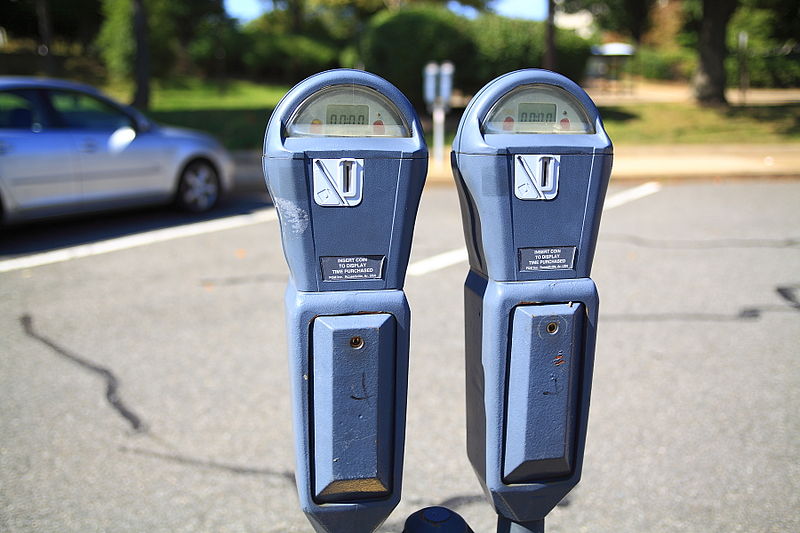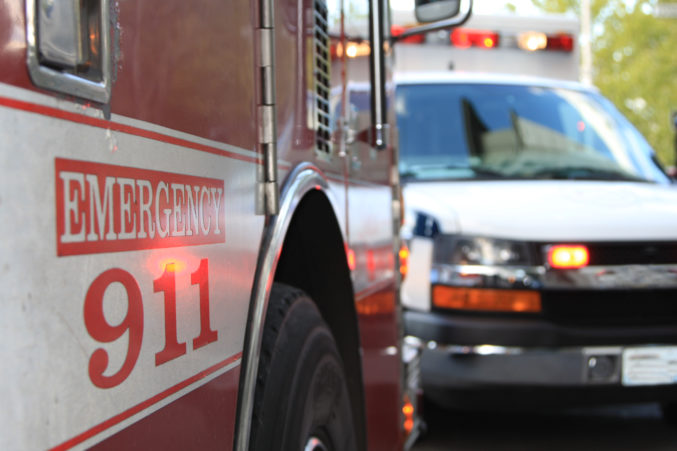The city is weighing several new initiatives to discourage panhandling, the most headline-grabbing a proposal to turn parking meters in problem areas into spare change donation stations supporting homeless assistance organizations.
It’s part of a broader public awareness campaign being considered to help funnel donations away from solicitors on sidewalks and roadways, and toward “long term sustainable solutions.” The proposed outcome would be a 70 percent decrease in panhandling in several targeted areas, according to a presentation given to the city’s public safety and criminal justice committee this morning.
If you’re skeptical that a website, some public service announcements, and giving meters would have such a dramatic effect on panhandling, you’re not alone. City councilmembers on the public safety committee critiqued a sample PSA that appeared to depict a homeless panhandler robbing a passerby. (Tagline: “There are safer ways to give.”) They quibbled with the identification of three target areas for the giving meters—Deep Ellum, Forest and Abrams, and Preston Center—that did not include the Central Business District downtown. They doubted the branding and marketing strategy of “Give Right Dallas.” The consensus on the committee seemed to be that the proposed campaign needs a lot of work before it’s street-ready, although councilmembers mostly took it easy today on the subject of the parking meters.
Repurposed parking meters intended to curb panhandling are not a new idea. Cities in the U.S. have been implementing them since at least 2007, following the lead of Denver. Without much evidence of a decrease in homelessness or panhandling, the meters have rolled out to mixed and unclear results. There’s no real reliable data on how much money an average panhandler can drum up, or on how much of that money is spent responsibly. While donating through a meter does ensure that money will go toward a worthwhile program, the funds raised can be negligible: in Orlando, it took three years for 15 meters placed downtown to raise just about $2,000. The National Coalition for the Homeless has also pointed out a kind of unintentional other-ing effect of the meters, keeping the needy out of sight and making homelessness an impersonal, abstract issue.
Other criticisms of the meters follow along those lines. The program is not intended to address homelessness, but to address visible homelessness. It hasn’t even been particularly good at that. Denver has as many homeless residents today as it did when it launched the Road Home initiative that included those first meters. An escalating series of camping bans and panhandling crackdowns haven’t hidden Denver’s homeless population.
There are real safety and quality of life concerns involving aggressive panhandlers in Dallas. But panhandling is a symptom of a more profound problem, and there aren’t enough PSAs or parking meters in Deep Ellum to fix it.






